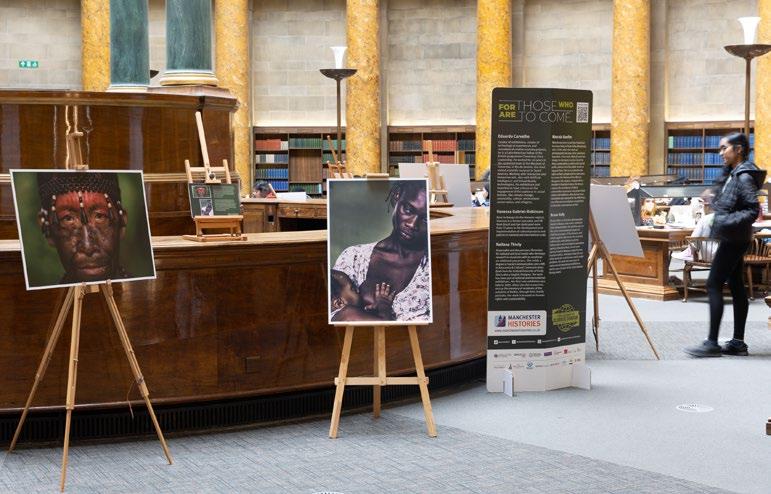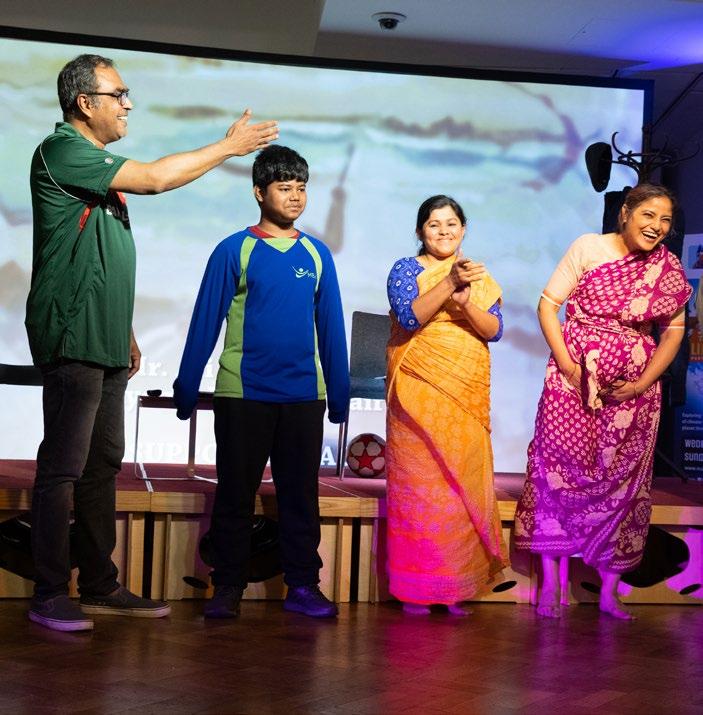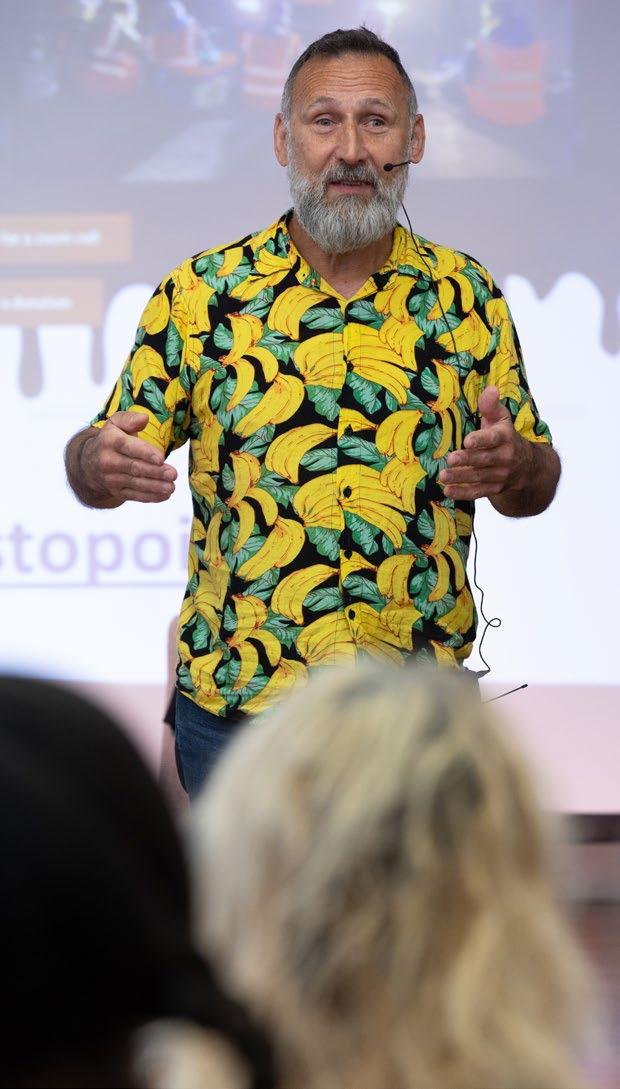
3 minute read
Manchester Central Library
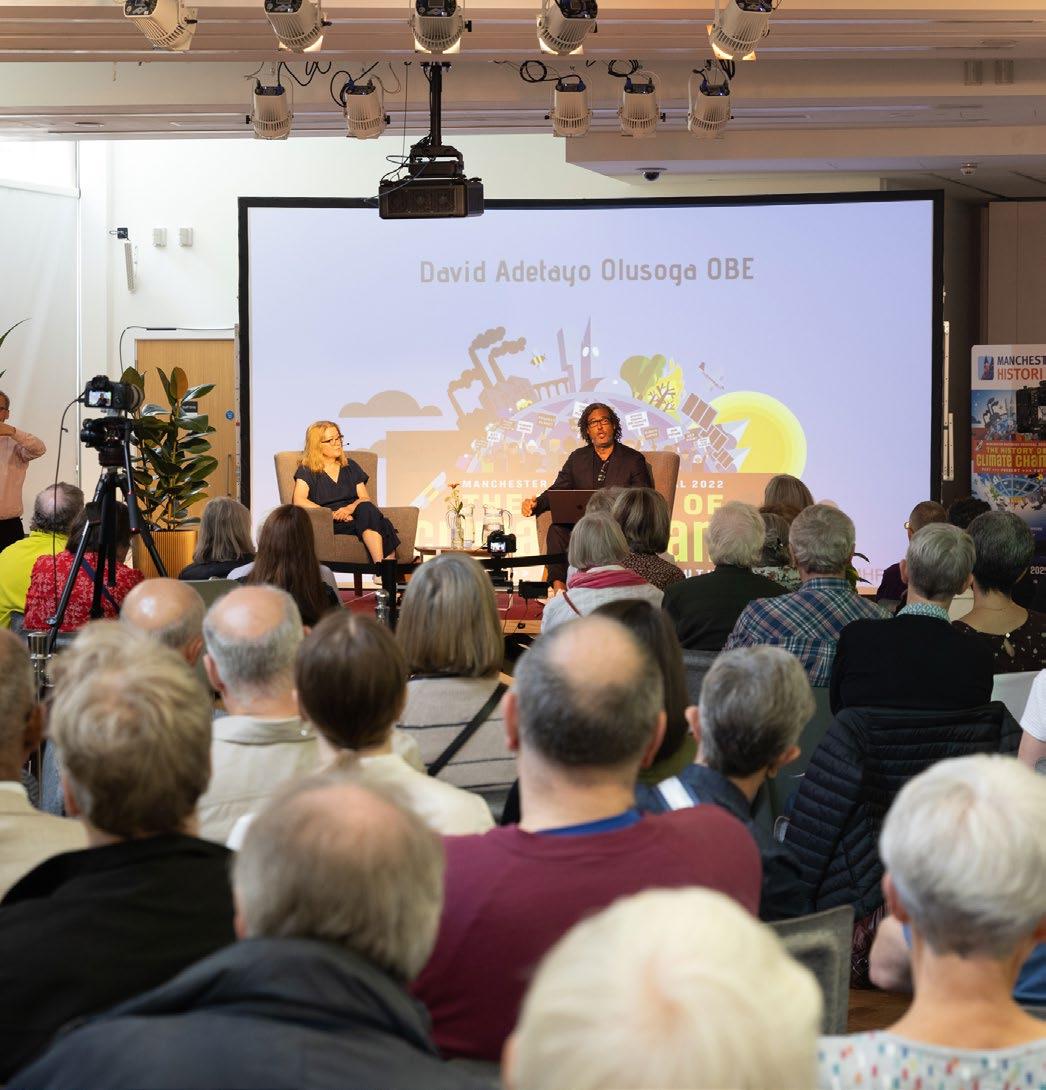
The Manchester Central Library was the main festival venue for both the festival’s curated and community sourced talks, conversations, performances, and exhibitions which took place between Thursday 9th June and Saturday 11th June.
This included the use of the Library’s Performance space where activities were live streamed from a popup broadcast studio and the successful trial of the new Manchester Histories Hub located in the Library. In addition, a stunning photography exhibition from Brazilian curators Eduardo Carvalho and Vanessa GabrialRobinson, For Those Who Are To Come, was exhibited in the Wolfson Reading Room.
The festival’s programme for these different spaces hosted a variety of activists, academics, and experts all exploring the past, present, and future of climate change through various types of activities. This included contemporary debates exploring themes of activism such as Just Stop Oil and Disability and Climate Activism. The future of climate change was also debated in the final sharing event for the Zero Carbon Cities network led by Manchester City Council, which presented on how different cities across Europe have learnt and progressed within their cities to achieve their zero carbon targets. In addition, GMAST discussed their journey on how they have brought together the cultural and creative community across Greater Manchester to address the climate and ecological crisis. Talks included Dr Mike Nevell and Ian Miller’s illuminating discussion on the impact of the Manchester Ship Canal where they discussed the commercial and social impact of the canal throughout history and its role in affecting climate change today. Other sessions explored how the city of Manchester and its vast empire of cotton had an imprint across the British colonial world, as well as how merchants from Manchester left a global legacy of ecological transformation through large scale cotton plantations. Meanwhile, headline speaker David Olusoga delighted a packed audience as he spoke about how the commemoration of individuals from our historical past remains a matter of continued and highly contested importance: why do statues matter? And what should we do with them today?
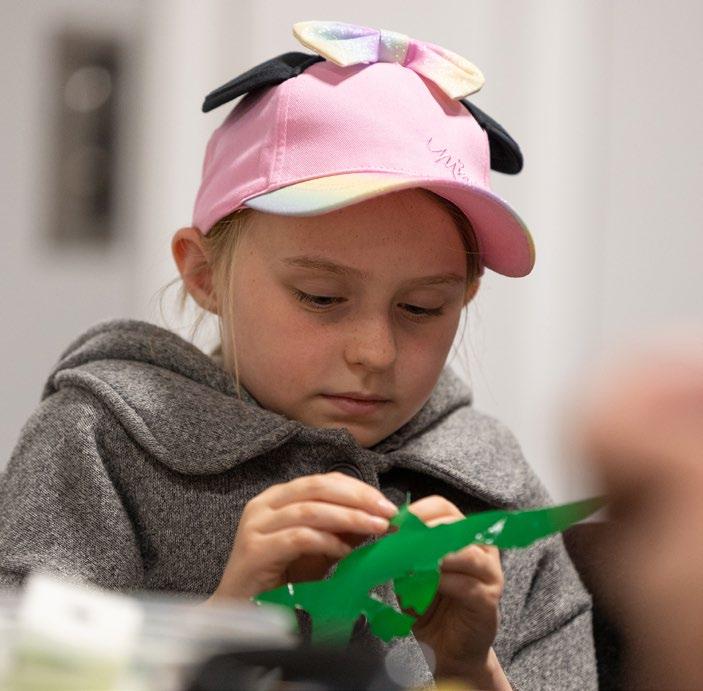
Community Stalls Manchester Central Library
On Saturday, organisations such as Manchester Digital Music Archive, Climate Emergency Manchester and Restoring Pennine Peatlands among others hosted stalls to play, get involved, and learn about some of the brilliant grassroots groups involved in climate action and local campaigns. Together, these events provided the ‘traditional’ Manchester Histories audiences a chance to explore local histories through the themes of climate:
What did you enjoy? Made me think about things not previously considered.
Audience Member, Feedback Forms
What did you enjoy? That a very wide and deeply researched argument is educative not controversial.
Audience Member, Feedback Forms
Ergon Theatre – The Wicked Problem

Ayna Arts Meanwhile, Ergon Theatre’s ‘The Wicked Problem’ was a real hit with audiences as they acted as judge and jury in a conflict over climate compliance in a remarkable performance from the company. This was thought-provoking for audience members and offered an opportunity to discuss the themes of the play from a different perspective:
What did you enjoy? Watching a good performance, hearing facts and different perspectives in an interesting way, having a chance for discussion.
Audience Member, Feedback Form
Excellent theatre but also informative and thought provoking.
Audience Member, Feedback Form
The Manchester Histories Hub created a more intimate setting for festival talks and workshops. This was a trial run of the Hub as a new public facing space for the organisation and offered a space for a series of author talks and workshops covering a broad, insightful range of climate linked topics with authors published by Manchester University Press plus former Financial Times editor and historian Brian Groom and historic graphic novelist, Polyp.
Overall, the trial was a success, although the team will look into improving the internet connection to support further blended and online sessions. The workshops offered in the space explored ways of empowering people of all ages to share knowledge and this provided a lively and creative forum for interactive discussion. In this respect, the new Hub supported the festival in bringing people together through history and climate and to offer a space for discussion and participation. In turn, this supports a new kind of audience to the festival who are interested in more active conversation-based events. Internally, the Hub has also supported the festival in developing close links with the Library’s staff which will support future collaborations for the festival.
For those who are to come
